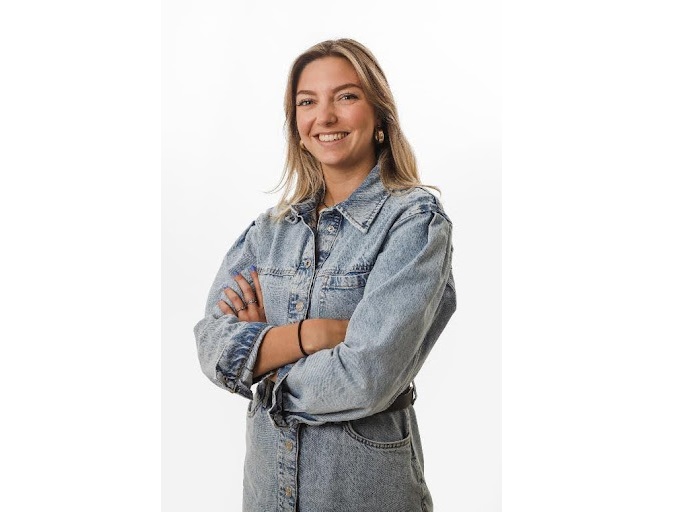
How did Donald Trump become president of the United States? How did Nike sneakers become associated with "Black Lives Matter"? How did gun ownership become a central question of American politics? What do people really mean when they say gender is "performative"?
In American Studies, you learn in depth about the popular culture, politics, history, literature, economics, race relations, and religions of the United States. And you study the connections between the Americas and the wider world. American Studies is not only 'American' - its international scope and inter-American perspective prepare you for an international career.
Our entire program is taught in English by top-notch international faculty, who help you get acquainted with a range of academic disciplines. With America as your case study, you develop essential skills in writing, speaking, and research-skills that you can apply far beyond the analysis of U.S. culture and politics.
The United States was once considered “the land of the future” - today, it is the oldest continuously existing democracy. An American Studies degree will help you understand the high stakes of the debates that animate global political and social movements today, so you can be an informed citizen of your country and the world.
First year courses build a strong foundation in American culture and history, explore the relationship between the U.S. and the world, and prepare you to tackle college writing.
In The Americas I and II, you'll learn how the U.S. became a global superpower, and about the origins of the modern Democratic and Republican parties. Theories of Culture I digs into the theme of identity, giving you new tools for thinking about race, class, and gender. American Studies in Practice I helps you perform better in all of your courses by working on your writing and speaking skills in English. In American Politics I and II, you'll study the founding texts of American politics, and learn about democracy through hands-on debates about controversial issues. And in North and South Americans, you'll read classic Latin American and Canadian literature and go in-depth on pressing issues like immigration, trade policy, and the War on Drugs.
| Semesters | ||||
|---|---|---|---|---|
| CoursesCourse Catalog > | 1a | 1b | 2a | 2b |
| American Studies in Practice I a/b (10 EC) | ||||
| The Americas I a/b: The American Century and Beyond (10 EC) | ||||
| Theories of Culture I a/b: Race, Class and Gender (10 EC) | ||||
| American Politics I & II (10 EC) | ||||
| North & South Americans I & II (10 EC) | ||||
| The Americas II a/b: New Frontiers (10 EC) | ||||
In the second year, you'll deepen your knowledge of history, politics, and culture, with additional freedom to choose courses that spark your interest. Theories of Culture II covers classic works of political and media theory that will help you think about problems in new ways.
In Americas III, you'll learn about the roots of contemporary concerns, such as racial justice and regional diversity, in the encounters and conflicts of the early modern period. American Studies in Practice II guides you through writing your first research paper on a topic of your choice. The spring is all about options. If you are into media and popular culture, you can take Media Specialization, which goes in-depth on the way technological changes shape the culture we consume. If you're more curious about economics and policy, check out Global USA. Special Topics courses change every year, exploring topics like 'Canada's Cultural Mosaic', 'American Conspiracy Culture', and 'Pioneer Landscapes'. Many assignments in these courses go beyond the academic essay: whether you're recording a TED Talk, writing an editorial, designing an exhibit, or helping to develop an app, you'll use your skills in analysis, research, and writing in new ways.
| Semesters | ||||
|---|---|---|---|---|
| CoursesCourse Catalog > | 1a | 1b | 2a | 2b |
| Theories of Culture II: Media Theory (5 EC) | ||||
| American Studies in Practice II a/b (10 EC) | ||||
| The Americas III a/b: From Exploration to Early Republic (10 EC) | ||||
| Theories of Culture II: Political Theory (5 EC) | ||||
| Global USA I & II (10 EC, optional) | ||||
| Media Specialization I & II (10 EC, optional) | ||||
| Special Topics (choose 4 courses of 5 EC each) (20 EC) | ||||
The third year consolidates your learning and prepares you for life beyond, whether in the workforce or a Master's program. In the fall, you can study abroad, take on a placement in the Career Minor, or take courses in another department by pursuing a Faculty or University Minor.
Your spring American Studies courses address evolving global challenges, in which the Americas play a central role: why do people migrate? What does it feel like to live between two cultures? How did “consumer” become so central to modern identity? How are globalization, technology, and climate change transforming capitalism? You'll crown your studies with an intensive research project, the BA thesis. Choose the topic of your thesis, and work with peers and professors to write something you can be proud of!
| Semesters | ||||
|---|---|---|---|---|
| CoursesCourse Catalog > | 1a | 1b | 2a | 2b |
| Minor (30 EC) | ||||
| Mobility, Migration, Transculturation (10 EC) | ||||
| BA Thesis (10 EC) | ||||
| Theories of Culture III a/b (10 EC) | ||||
N.B. Second and third year courses might change during the academic year. Please check our website regularly for updates.
| Programme options |
|---|
| Minor (minor) The fifth semester of your studies is dedicated to your Minor: a coherent set of future-oriented course units. It prepares you for a follow-on Master's degree program or for entering the labour market. You can opt for a Career Minor, a Minor abroad, a University Minor or a Faculty Minor. |
| University of Groningen Honours College (honours program) The Honours College will give talented, motivated students the chance to be challenged even more by following Honours programmes and taking part in numerous other activities. The Honours College comprises a broadening part and a deepening part and has a study load of 30 ECTS credit points besides the 180 ECTS credit points from your regular Bachelor programme. |
Study abroad: a minimum of 30 ECTS.
Studying abroad in the United States during the first semester of your third and final year is an asset to the American Studies experience at The University of Groningen. Selected students can enroll in a variety of courses of your choosing at one of our highly valued partner institutions in the U.S.
This is your opportunity to experience first-hand everything you have studied in the classroom, a truly enriching opportunity for students, both academically and personally! For more information regarding exchange locations, please visit the Department of American Studies website at https://www.rug.nl/let/studeren-bij-ons/american-studies/internationalization/
If you have passed the VWO (pre-university education) exam in English, you satisfy the language requirement.
If you have passed the VWO (pre-university education) exam in English, you satisfy the language requirement.
If you have passed the VWO (pre-university education) exam in English, you satisfy the language requirement.
If you have passed the VWO (pre-university education) exam in English, you satisfy the language requirement.
Language requirement English: A VWO diploma or a subject certificate for VWO English (mark 6 or higher), minimum requirement of TOEFL iBT 90 (with a minimum of 21 on all items), or IELTS 6.5 (with a minimum of 6 on all items). Cambridge C1 Advanced or C2 Proficiency with a minimum score of 180.
For more information, see: https://www.rug.nl/let/studeren-bij-ons/bachelor/aanmelding-en-inschrijving/language-requirements-ba
The degree programme will organize a matching procedure. Attendance is optional. The advice is not binding.
The Faculty of Arts believes students can decide for themselves whether they match with their chosen program based on the available bachelor program information, by visiting the Open Days, and by participating in a Webclass and/ or Student for a Day. If you are unable to attend one of these activities, a final opportunity for matching is to contact one of the students of the program in June.
If you have any further questions about matching, check out: www.rug.nl/matching
| Type of student | Deadline | Start course |
|---|---|---|
| Dutch students | 01 May 2025 | 01 September 2025 |
| 01 May 2026 | 01 September 2026 | |
| EU/EEA students | 01 May 2025 | 01 September 2025 |
| 01 May 2026 | 01 September 2026 | |
| non-EU/EEA students | 01 May 2025 | 01 September 2025 |
| 01 May 2026 | 01 September 2026 |
The Faculty of Arts believes students can decide for themselves whether they match with their chosen program based on the available bachelor program information, by visiting the Open Days, and by participating in a Webclass and/ or Student for a Day. If you are unable to attend one of these activities, a final opportunity for matching is to contact one of the students of the program in June.
If you have any further questions about matching, check out: www.rug.nl/matching
| Specific requirements | More information |
|---|---|
| previous education |
A Dutch VWO diploma, a German Abitur, an International Baccalaureate diploma, a European Baccalaureate or another diploma that is sufficient for acceptance to a Dutch university. For other VWO-equivalent qualifications, see: https://www.rug.nl/education/application-enrolment-tuition-fees/admission/procedures/application-informatie/with-non-dutch-diploma/entry-requirements/bachelor-entry-requirements/vwo-equivalent-qualifications. Students with a Dutch 'hbo propedeuse' diploma also need to meet the language requirements mentioned below. |
| other admission requirements |
English language requirement: A VWO diploma or a subject certificate for VWO English (mark 6 or higher), minimum requirement of TOEFL iBT 90 (with a minimum of 21 on all items), or IELTS 6.5 (with a minimum of 6 on all items). Cambridge C1 Advanced or C2 Proficiency with a minimum score of 180. |
| Type of student | Deadline | Start course |
|---|---|---|
| Dutch students | 01 May 2025 | 01 September 2025 |
| 01 May 2026 | 01 September 2026 | |
| EU/EEA students | 01 May 2025 | 01 September 2025 |
| 01 May 2026 | 01 September 2026 | |
| non-EU/EEA students | 01 May 2025 | 01 September 2025 |
| 01 May 2026 | 01 September 2026 |
If you want to continue with a Master's degree program after your graduation, as most students do, you will have a wide range of programs to choose from. With a Bachelor's degree in American Studies, you have access to the following Master's tracks at the University of Groningen:
As an American Studies BA student, you'll learn to
Journalism and Media
Use your knowledge of U.S. history, culture, and politics to write
for international media outlets, or build new platforms for new
audiences.
Business and Banking
Your ability to think, write, and speak confidently in English,
coupled with your deep knowledge of U.S. economic, cultural and
commercial policies and practices, make you an asset to companies
seeking to expand into the Dutch, European, and U.S. markets.
Arts and Culture
Your cross-cultural experiences and English skills can serve you
well in roles like organizing cultural programs for a museum,
guiding visitors for a travel organization, helping international
workers integrate into the Netherlands, or launching your own
cultural enterprise.
Government and the Public Sector
Your subject-matter expertise in U.S. socio-political affairs and
strong English skills transfer readily to positions in local,
national, and international governance. Consider working for an
embassy, local or national government office, or NGO.
Communications and Public Relations
American Studies teaches you how to analyze difficult problems and
craft a message that will speak to your audience--that’s what
the fields of Communication and Public Relations are all about. Our
graduates work in communications roles for businesses, governments,
and non- profit organizations.
Management Consulting and Human Resources
Put your strong analytical, communication, and writing skills to
use helping businesses and organizations assess internal challenges
and manage change constructively.
The research carried out by the Department of American Studies, by and large, mirrors the main concentrations in our educational agenda. At the heart of our research efforts, and hence of our curriculum, are three separate themes:
Given the nature of American Studies, the key distinguishing feature of our research as well as in our teaching is that it is truly interdisciplinary in approach in which the individual researchers actively work across different disciplines and methodologies as opposed to, for example, research on American topics carried out in the History Department, which would generally reflect historical approaches only.
The same is true for our teaching agenda: individual teachers are required to be versatile in more than one discipline as all major survey courses combine a range of disciplinary areas, approaches, methodologies, and data sets. Aligned with our teaching practices, our research is generally problem-driven as well as theory-driven. That is to say, we explore specific issues that are controversial, contested, or under-investigated, and then seek to resolve these issues through the generalization of our findings, incorporating elements associated with both the structure and the process of the phenomena we study. Among the themes we are currently exploring are:
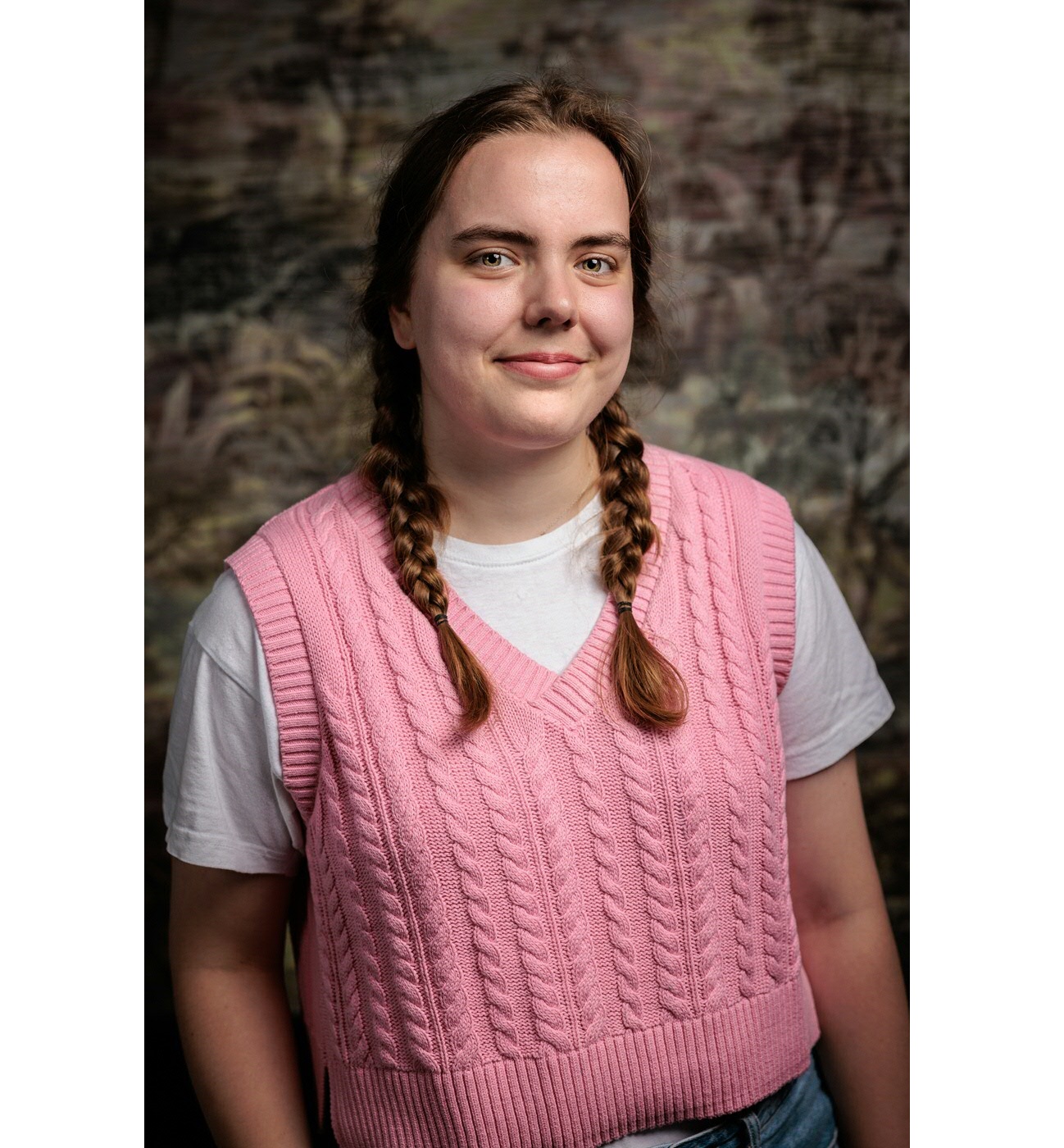
Hi! My name is Lynn Barsema, I am twenty-two years old and currently a second year American Studies Bachelor's student. I was born and raised in Groningen and currently live just outside the city. My hobbies include playing and listening to music - I play bass guitar - as well as hanging out with friends, and watching movies.
I chose American Studies because of how broad and interdisciplinary it is. I love writing and after visiting an Open Day the contents of the courses convinced me to choose the study. I was excited about the combination of different disciplines and how interconnected all the different subjects are. Within the courses we rarely focus on just one discipline. Instead, we look at history, literature, sociology, politics, economics, art, and more. This allows us to explore subjects we are interested in without the boundaries of a fixed field of research. One of the aspects that really cemented my choice to study American Studies is this freedom to explore and decide on what you want to do independently. This varies from course to course but throughout everything you get a lot of opportunities to pick subjects you are interested in. While a lot of the program focuses on the US we also talk about Latin America, the Caribbean and Canada which offer some nice variety. Furthermore, the issues we look at in the US can be applied to different countries as well. For me the US is an interesting place because they have some of the issues we encounter here in Europe as well, just on a much larger scale. One last exciting aspect of American Studies is the Minor Abroad, which allows you to complete part of your degree in the US (or another country in the Americas). I am planning on going next year and am excited to be able to experience American culture in real life instead of just learning about it from a classroom.
Read more about Lynn and why she chose to study American Studies in Groningen!
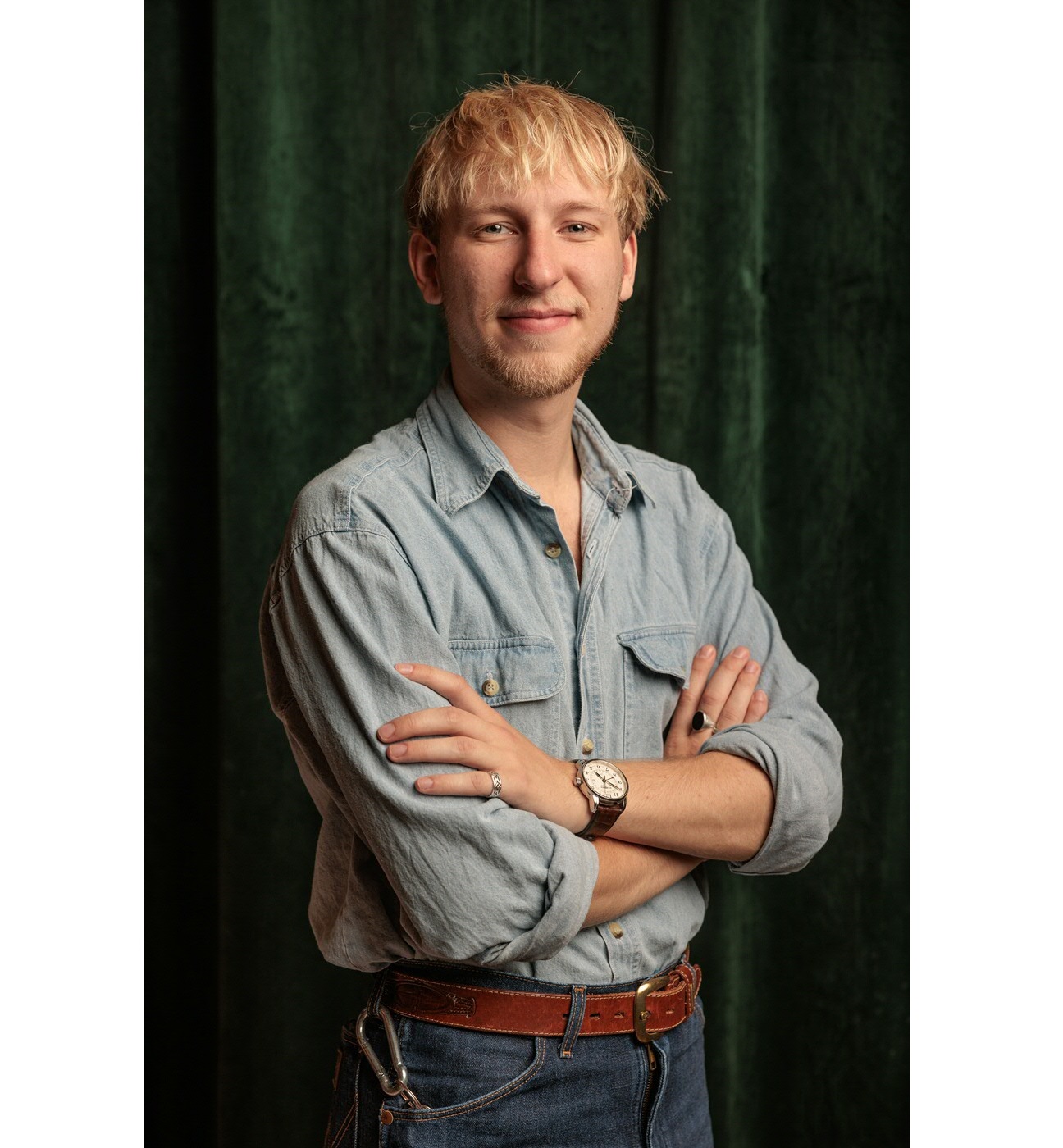
Hi! My name is Rutger Renkema, I am twenty years old and currently in my third year of the Bachelor American Studies. I have been living in Groningen since 2022, after moving here from Steenwijk. I love to go out to get coffee with friends and thrifting. My favorite movie is Scream – a movie that you can watch for one of the American Studies courses!
I chose American Studies because of its diversity and interdisciplinarity, and my broader interest in American culture and politics. I was pleasantly surprised how you are not just studying history, politics, economics or sociology, but all of these, simultaneously. American Studies is a field that thrives on interdisciplinary exploration. Instead of confining yourself to a single perspective, branch out and immerse yourself in history, literature, sociology, politics, art, and more. You can really dive into the hidden corners of American history and uncover narratives that challenge conventional ideas. You also dig into the stories of underrepresented communities, women, LGBTQ+ individuals, and other marginalized groups whose stories have often been overlooked. During high school, I always thought the United States was really interesting, and really had an interest in it. This doesn’t mean that you have to be extremely interested in the US of course. It often shows more extreme forms of social problems we encounter here in Europe, which is why this study is more relevant to non-Americans than you might think. You also get to study Latin America and Canada, which is a great bonus! I am also planning on doing my minor in the US, which is a unique opportunity to live in the US and experience the culture firsthand. You also get priority to go to American universities over other students.
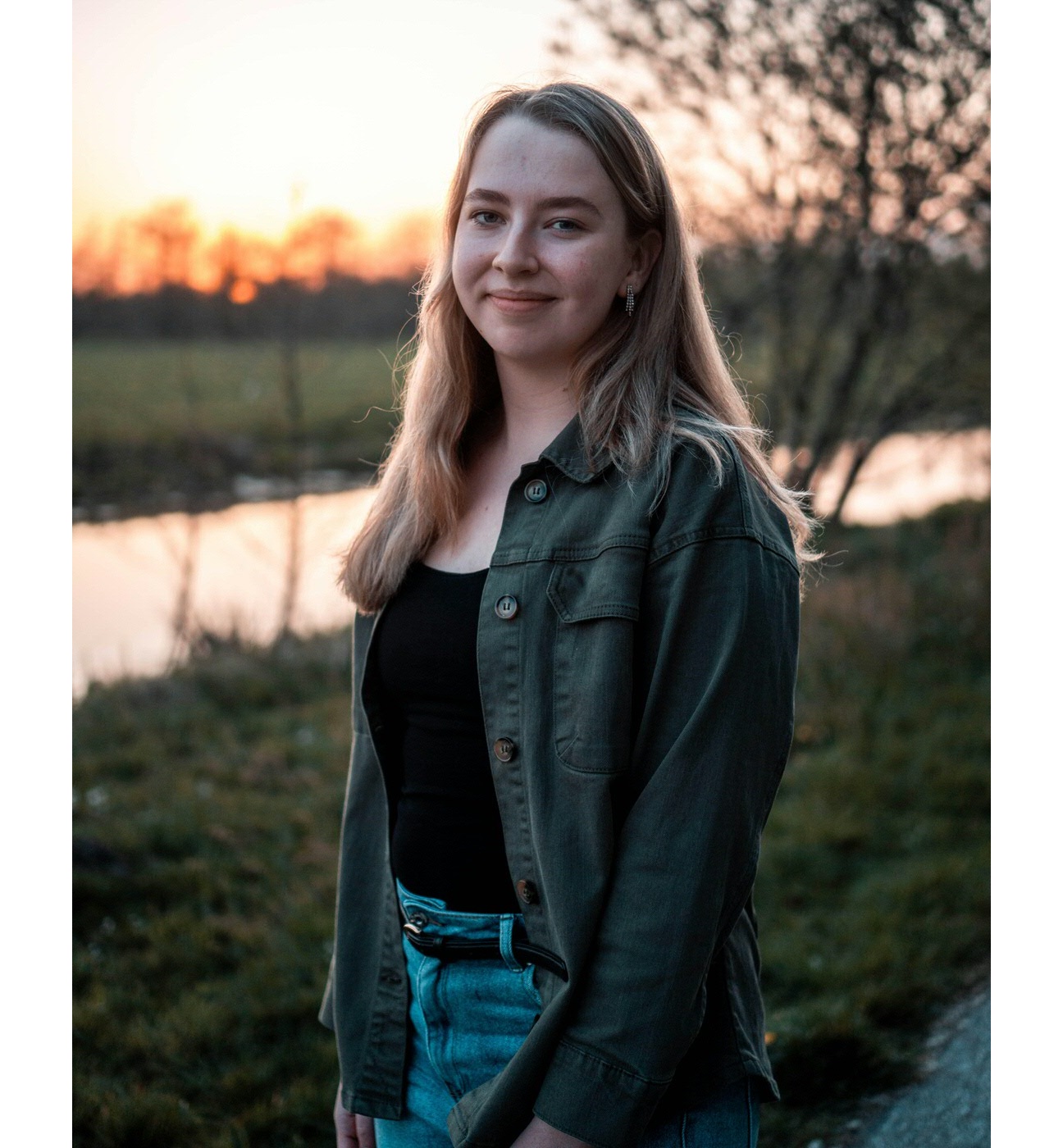
Hi! My name is Eline Santema, I am twenty years old and currently in my third and last year of the Bachelor American Studies. I was born and raised in the beautiful province of Friesland and commute to Groningen for my classes. I love to sing, go out to get coffee with friends and I am trying to write a romance novel in my free time. My favorite movie is - of course - Legally Blonde.
I chose American Studies because of its diverse and interdisciplinary program. I love the fact that you are not just studying history, politics, economics or sociology, but all of these at the same time! During high school, I always thought the United States was an interesting nation, but I never had a “special” interest in it. This completely changed when I started studying American Studies. The United States is such a diverse and fascinating country, in both positive and negative ways. It often shows more extreme forms of social problems we encounter here in Europe, which is why this study is more relevant to non-Americans than you might think. You also get to study Latin America and Canada, which is a great bonus!
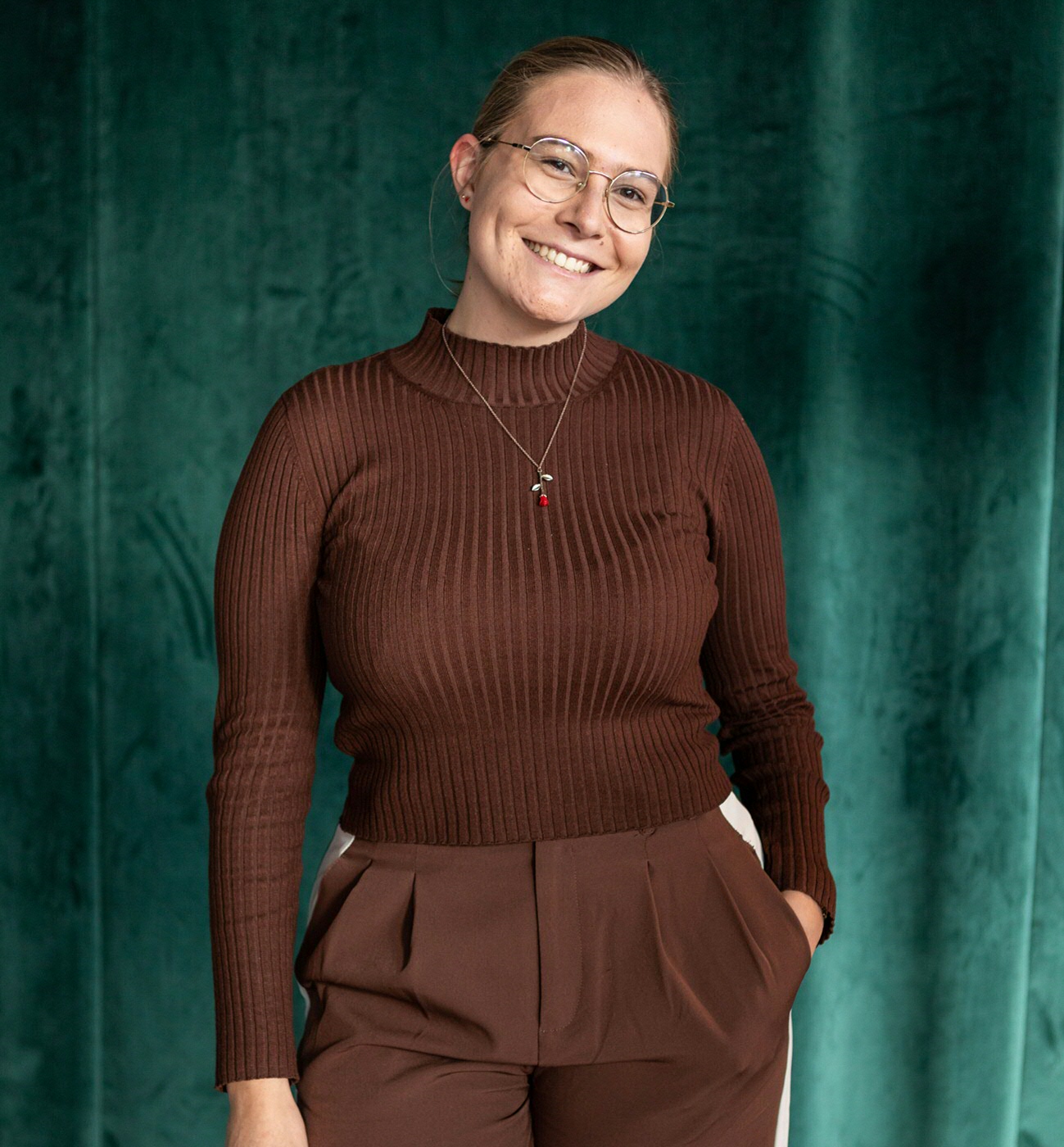
Hi! My name is Chloë. By the time you can find this little piece on the student ambassadors page I am twenty-two years old and a second-year BA American Studies student. I grew up in Germany and the Netherlands, and I am currently living in Groningen. Next to my studies I spend time in the Crossfit gym, I go for walks and runs, and I have an additional job. I also love to read books and watch movies/tv shows, and live life to the fullest with my best friends and family.
Before applying for American Studies at the UG, I attempted studying International Studies in The Hague and European Law in Maastricht. However, neither were the perfect fit and so I dropped out. I knew I wanted to study something with a certain international aspect, since international communities, politics, economics, history, cultures, etc. really interest me. The BA American Studies consists of this aspect and all these territories, and combined with the fact that program is really small (everyone knows everyone, teachers included, and you'll easily become friends with your fellow students), yet very highly regarded, made me apply. Students develop academic/research skills to an incredible extent, which is of course super handy for your future career. Besides, we have a very active study association (EPU) that organizes a ton of great events. In addition, joining (one of) their commissions provides you with amazing experiences and memories.

